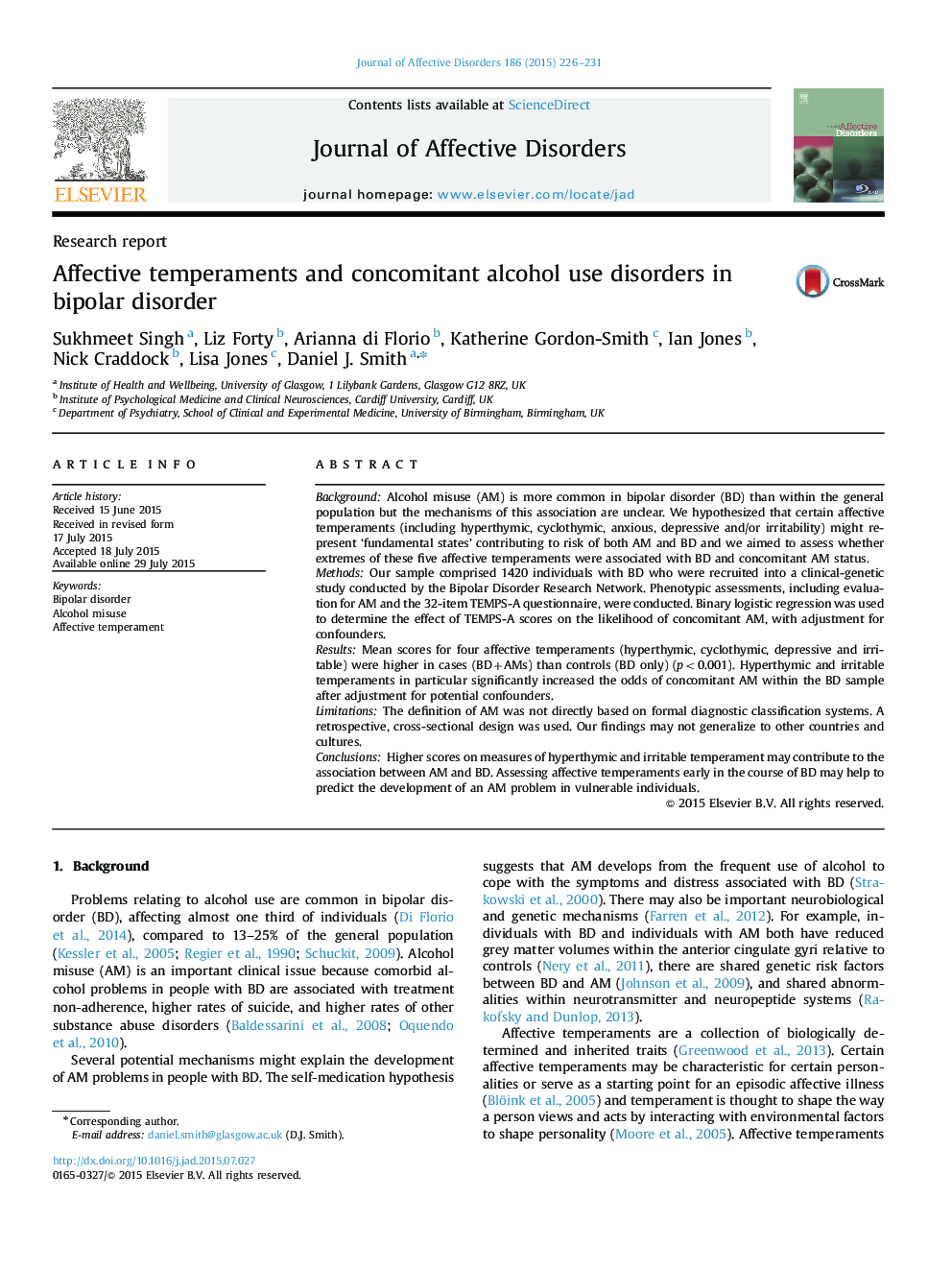| کد مقاله | کد نشریه | سال انتشار | مقاله انگلیسی | نسخه تمام متن |
|---|---|---|---|---|
| 6231180 | 1608139 | 2015 | 6 صفحه PDF | دانلود رایگان |
- We assessed affective temperaments and alcohol misuse in people with bipolar disorder.
- Hyperthymic, cyclothymic, depressive and irritable scores were higher with alcohol misuse.
- Hyperthymic and irritable temperaments increased odds of concomitant alcohol misuse.
- Early assessment of affective temperament might predict future alcohol misuse.
BackgroundAlcohol misuse (AM) is more common in bipolar disorder (BD) than within the general population but the mechanisms of this association are unclear. We hypothesized that certain affective temperaments (including hyperthymic, cyclothymic, anxious, depressive and/or irritability) might represent 'fundamental states' contributing to risk of both AM and BD and we aimed to assess whether extremes of these five affective temperaments were associated with BD and concomitant AM status.MethodsOur sample comprised 1420 individuals with BD who were recruited into a clinical-genetic study conducted by the Bipolar Disorder Research Network. Phenotypic assessments, including evaluation for AM and the 32-item TEMPS-A questionnaire, were conducted. Binary logistic regression was used to determine the effect of TEMPS-A scores on the likelihood of concomitant AM, with adjustment for confounders.ResultsMean scores for four affective temperaments (hyperthymic, cyclothymic, depressive and irritable) were higher in cases (BD+AMs) than controls (BD only) (p<0.001). Hyperthymic and irritable temperaments in particular significantly increased the odds of concomitant AM within the BD sample after adjustment for potential confounders.LimitationsThe definition of AM was not directly based on formal diagnostic classification systems. A retrospective, cross-sectional design was used. Our findings may not generalize to other countries and cultures.ConclusionsHigher scores on measures of hyperthymic and irritable temperament may contribute to the association between AM and BD. Assessing affective temperaments early in the course of BD may help to predict the development of an AM problem in vulnerable individuals.
Journal: Journal of Affective Disorders - Volume 186, 1 November 2015, Pages 226-231
